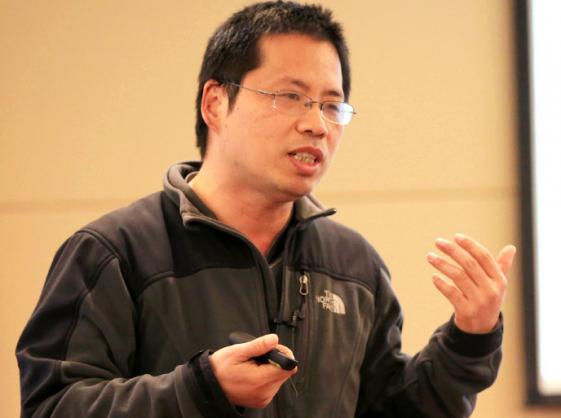Recently, Dr. Zhang Xuefu, who specializes in Greek philosophy and the history of early Christian thoughts, gave a lecture titled “Christ as the Inner Light” online to share the theological ideas of Augustine, the famous classical theologian.
Devoting himself to the studies of Greek philosophy and the history of early Christian thoughts, Dr. Zhang has published works of Platonism of Christianity, Stoicism, and Introduction to the Thoughts of Philo Judaeus. He lectures on ancient western philosophy, philosophical issues, philosophical consciousness, Greek and Roman philosophy, and Augustine’s philosophical thought.
Dr. Zhang first briefly summarized Augustine’s concept of time. There is a very important understanding that is the understanding of “the present”.
He pointed out, “Augustine thought that ‘now’ was the essence of time. We usually call time the past, present and future. However, Augustine said that it was not an accurate term of time. The accurate term of time was the past present, present present, and future present. So the essence of time is now.”
Professor Zhang explained, “The past cannot be realized until it becomes the present. Past events must be recalled through memories, only then can they be in my presence so that I can understand them. The past must be remembered as the present before it can be noticed. The future has not happened unless it is expected by me. Or put the future into my present attention and it will become my goal. So whether it is in the past or in the future, its essence is still the present.”
“Moreover, Christ is the eternal now. When Christ’s present essence is projected into the present world, then we have our present essence. The presentity we experience in time results from the essence that is projected by God through Christ. Because of this, we must go through Christ to enter eternity and enter the kingdom of God.”
Dr. Zhang continued, “Christ as the inner light must be shown in the inner self.” Professor Zhang mentioned classical dualism and Augustine’s trinity. He further mentioned the semiotics of Augustine’s theological theory - symbols, the knowledge of symbols, and the knowledge to which symbols refer. “We cannot learn about Christ through symbols. Instead, we should learn about Him through our inner selves. The inner person has two meanings. One is our soul, but there is an inner person living in the soul. Augustine said that we should listen to the truth which is the voice coming from within us. Our thoughts should make voices and there is something in my thoughts that can master my thoughts. We know that God’s unchanging omnipotence and his eternal wisdom are our true instructors, and this is Christ.”
“Christ teaches us by teaching our inner selves. If a person’s soul does not listen, he still will not believe Him even if he sees Him. Therefore, Christ’s redemption is to change a person’s inner life, after which he can get to understand the external world. Therefore, Augustine emphasized that we could not understand Christ from an external way, and through symbols and things to which symbols refer. Understanding Christ in this way is very limited. As a result, the Christ understood as such is a limited Christ, and that kind of life has not been truly reversed. This is his own belief experience.”
“Augustine believed that faith was the sight of reasoning.” Professor Zhang said: “This statement is wonderful. Christ’s teaching is to teach people from the inner nature. It is this inner teaching that has changed our relationship with the world.”
“Christ of the inner light is a very important concept, which can help us expand the horizon that we have never seen in education alone,” he concluded.
In the Q&A session, Dr. Zhang clarified again, “First of all, we should pay attention to the fact that the inner light is not the light of nature. What we should pay attention to is that the inner light is always the light of Christ. According to natural theology, the inner light is the light of nature since creation. Augustine did not understand it from this angle. The inner light he talked about only referred to the light of Christ.”
- Translated by Charlie Li












